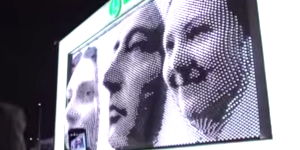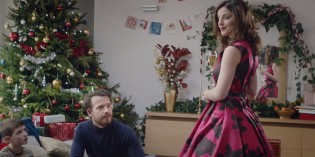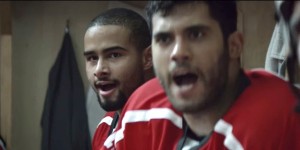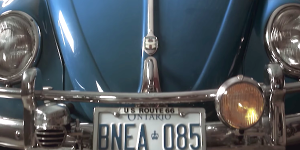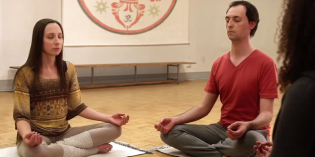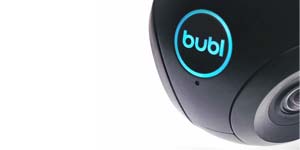Brands have always known how to spend loads of money to grab consumer mindshare, how to shout the loudest and say “pick me, pick me.” But at last week’s Cannes Lions International Festival of Creativity, the Oscars of advertising, the best work did something essential in an age of integrated content, conversation and commerce: it created not just moments but movements.
The Cannes Lions honours the best in brand creativity on a global stage and motivates and inspires marketers and agencies to raise the bar creatively every year. The work that broke through this year forged meaningful connections based on utility, authenticity and good old-fashioned storytelling.
The challenge, though, for creative marketing in a digital world is that the definition of “story” is changing. Not in the traditional sense of a beginning, middle, and an end, but in terms of the narrative. The story along the way is being told in fresh new ways and delivered through new platforms—where the media being delivered remains native to the platform being seen or touched. These are becoming compact short bursts of rich content packaged as sight, sound and motion, ultimately creating emotion for brands by touching people. Increasingly, it is less about format and more about becoming a brand of use, where the brand delivers purpose and utility.
Utility is the reason Uber is valued at $7 billion and Priceline just snapped up Open Table. The best brand experiences provide a service that’s useful and seamless to the end user. The next generation won’t distinguish between devices, and products won’t determine our whole lives—instead all the technologies will speak to each.
This year’s Grand Prix Mobile Winner, a print and mobile ad for Nivea Sun Kids, showed the promise this holds for great consumer experiences. “Sun-Band” from Nivea and FCB São Paolo was a kids’ sunscreen print ad that turned into a wearable device, letting parents monitor how close their kids were to the water.
This is brilliant marketing on a number of fronts: it provided parents with an instant utility, proved that print can be innovative and it aligned with Nivea Sun’s brand message around safety.
Consumers today are creators, curators and critics—personal expression is a new form of entertainment. We’re moving towards a place where brands are valued because they are accessible and relatable.
That’s why Pharrell’s 24-hour music video for the song “Happy” was a Cyber Grand Prix winner last week and one of the best creative efforts this year. The interactive video featured more than 300 people dancing and prompted more than 1,500 fan remakes. “Happy” reached 9 million people in 24 hours, who watched for an average of six minutes and went from $50,000 in sales before this experience to $7 million after.
For brands to make a lasting impact, storytelling still matters. The best creative at Cannes this year wasn’t necessarily about gadgetry or innovation, but telling a smart story.
Volvo Trucks’ “Epic Split,” another Cyber Grand Prix winner, nailed storytelling. To showcase the stability of Volvo steering, the spot featured action star Jean-Claude Van Damme doing a perfect spilt between two reversing trucks. Volvo found a way to make the technology behind truck steering compelling not just to the key target audience of truck drivers, but also to a general audience.
Impactful storytelling doesn’t happen in a vacuum. What gave “Epic Split” staying power was the long-term strategy Volvo Trucks put behind it. Volvo seeded the idea for months with videos using outrageous stunts showing off the trucks’ features, racking up more than 100 million YouTube views over two years. The campaign then had additional legs with spoofs such as YouTube clip promoting “22 Jump Street” and featuring Channing Tatum.
So what does this mean for marketers? The brands that react with relevant creative tap into the cultural relevancy of the moment and that are delivered in remarkable ways will continue to stand out. It could be brands creating experiences that tap the “selfie” culture by allowing themselves to be at the heart of your brand, driven by sight, sound and motion (think “First Kiss” by Wren and “This Built America” from Ford), or brands that are prepared to “hack” their own brand and create something completely unique by tapping into their DNA (think Honda’s “Sound of Honda – Ayrton Senna 1989”). It’s about experiences that invite people to explore and experiment with them. We’ll see more brand experiences that adapt to the environment, both in established channels like digital outdoor (think British Airways, “The Magic of Flying”) to new advertising platforms not yet released – of course, with updated ways to measure the effectiveness of the creativity.
One thing I do know for sure is that Cannes Lions remains an important place to celebrate creativity. It helps crystalize themes, ideas and trends across creativity while inspiring us to think about how to deliver through new platforms and channels. As Rob Norman, Global Chief Digital Officer at GroupM said during an interview with me last week, “Cannes encourages clients and agencies to do great work.”
Today, ideas can be delivered to the right person, at the right time, in the right way through sight, sound and motion in short-form, long-form, interactive-form, sharable-form or multipurpose-form.
The future of creativity will be about utilizing all of the above “natively” and “purposely” through brands to capture the hearts and minds of people, creating value and increasing spend.



